Helle Telk experienced emigration and family abandonment, but in the midst of these circumstances, she found God's care and faithfulness.
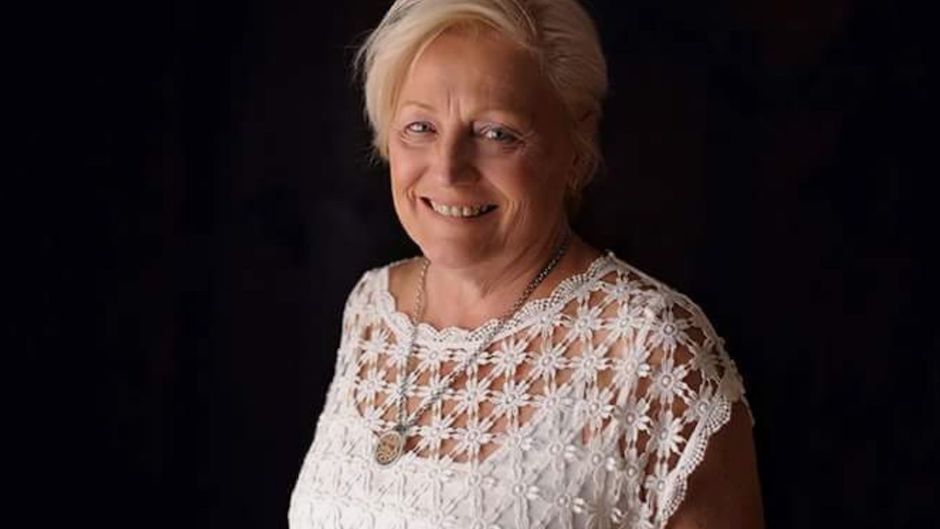 Helle Telk, speakerand writer.
Helle Telk, speakerand writer.
After experiencing the abandonment, few could have thought that Helle Telk would succeed. As a very young girl, after experiencing emigration to Argentina because of the Second World War, she was placed in an orphanage in Buenos Aires.
Against all odds, she experienced God's care there in amazing ways, as she tells in her autobiographical book Divine adoption.
Helle Telk is now a renowned international speaker and carries out a teaching ministry in several North and South American countries.
She was in Spain recently, where she talked about her life, the importance of prayer, and the miracle of forgiveness, with the Spanish news website, Protestante Digital.
Question. You wotte this book because you felt you had something important to tell.
Answer. There are many important things to tell, but the most important is that God took charge of my life. I was abandoned when I was little, and since I was a child I realised that God was real, someone very powerful who was going to help me through all the moments of my life, from the orphanage to today.
I took God as a very close and caring person, who loved me and gave me what my family did not give me. I was excited to see that God was with me, responding to what I asked of him. God covered me, he gave me love. I think that is the most important thing in the book.
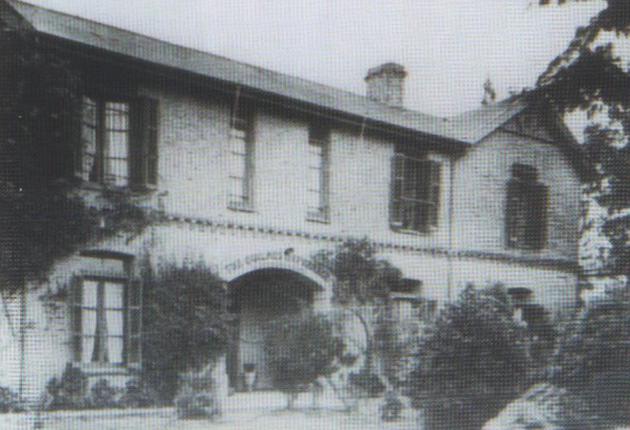
Q. You sent your fist years in in Austria and in 1948, you left on a boat for Argentina.
A. My mother lived in Europe during the the World War II and she lost her first husband in the war. We travelled with her second husband, my father. It was difficult because we came with nothing, we arrived in Argentina like so many people, looking for a new beginning.
As soon as we arrived in Argentina, my parents split. Soon after my mother put me in an orphanage. I was four years old and I stayed there for fourteen years. In the end, it wold mark my life in a positive way, despite the shortcomings I had to face: not having my family, the lack of love, of material things, being abandoned by my direct family.
Q. How was the process of learning to live with your mother's abandonment?
A. I suffered during the fourteen years of the orphanage. I could not overcome the lack of a family. God was my support, but the pain of not having my mother was hard. Sometimes I prayed and asked God to give me my mother back. But I felt that God was telling me that there was a plan for that absence.
God gave me so many good things at once, he filled me with so much joy, that helped me to overcome it. But I don't know if I got over it completely. My heart and feelings were affected, my mother's absence was very hard.
Q. In the orphanage you found friends, the care of people, and the importance of prayer. Tell us about the relationship you had with God
A. There was a prayer room. One of the caretakers, Angelica, who was very good to me, took me to the prayer room, and said: "Helle, listen well to what I am going to tell you, pay attention: If you enter this room and ask God for everything you need, God will give it to you".
And I said, "Are you telling me that God will give me everything I ask for? I don't have a mother, a father, clothes, I don't have anything". And she said: "Absolutely". I loved her, she was a reference for me, so I believed her and decided to live with that security. I trusted that God answered prayers, and that's how we lived.
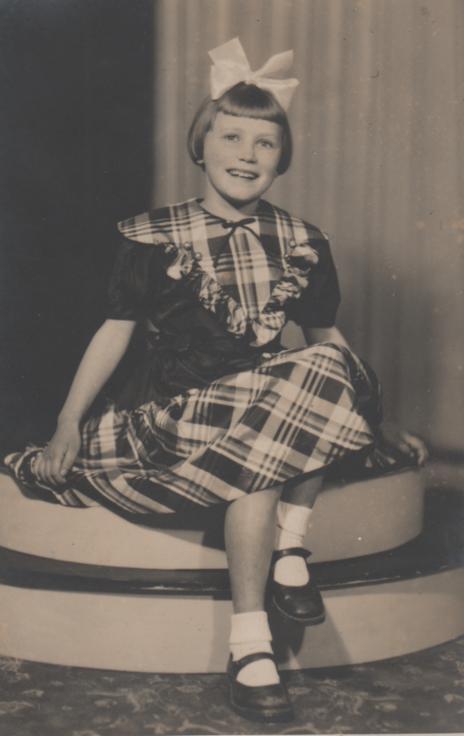
With other girls from the orphanage we went there to pray, and God answered. It is so beautiful to see with your eyes that God works miracles and wonders. He can do it anywhere. Sometimes we even thought about what to ask God. One day it occurred to us to ask for new grey embroidered pullovers.
Three or four girls went to the prayer room and prayed. That same week, two or three women approached the director and told her that they were preparing new grey embroidered pullovers. That was the most beautiful clothes we had, my favourite.
Q. How did your faith develop as you grew up in this environment?
A. The faith in the orphanage was active. I saw results. Sometimes, because we don't see, it is hard to keep growing in faith. But I was encouraged to see what God was doing, and I felt like I was climbing the steps of faith, which is what I believe a Christian should do.
Sometimes we stagnate in certain steps and it seems that our life doesn't have that vibration of God's response, which is what helps you grow on a daily basis.
Q. At the age of 18 it was to leave the orphanage, and there you also experience the hand of God.
A. I had my dreams and I wanted to experience the world outside the orphanage. But I had nothing. I didn't know where to go. So I went back to the prayer room, like so many other times in my life.
I prayed that God would give me a place to be. That same week, the management called me because there was an Estonian family who had offered their house for me to stay there until I got married. It was a Christian family. So two days later I left and I had a place to stay.
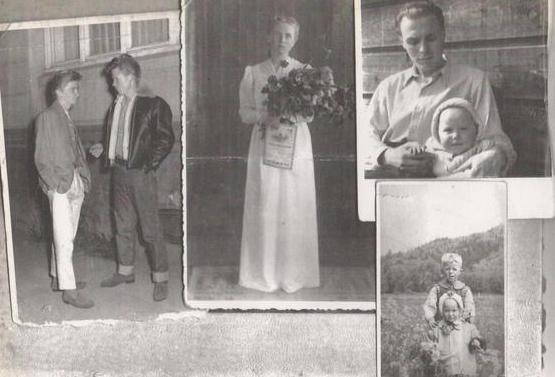
Q. How was your experience in those first weeks outside the orphanage?
A. Leaving the orphanage was difficult for me, because I had no experience of living with a family. I had lived a very strict life until then, and suddenly I had to manage everything by myself. But the values I had received at the orphanage were very important.
There were many practical things I didn't know. For example how to put on make-up, paint my nails, handle money, deal with people, so it was a bit difficult. Furthermore, I started working as soon as I left. I remember that at work other made fun of me. But I made it, I got ahead.
Q. Shortly afterwards you met your husband Osvaldo and started a family. How did you live that situation?
A. It was difficult for me. Getting married and having children, without having had the personal experience of living in a family, is something complicated. It is difficult to explain for those who have not gone through this.
It was difficult for me to show love to my husband or my children, because I have never received it. I asked God for love to give to my family.
There were also people, family who helped me. I learned from everything I saw.
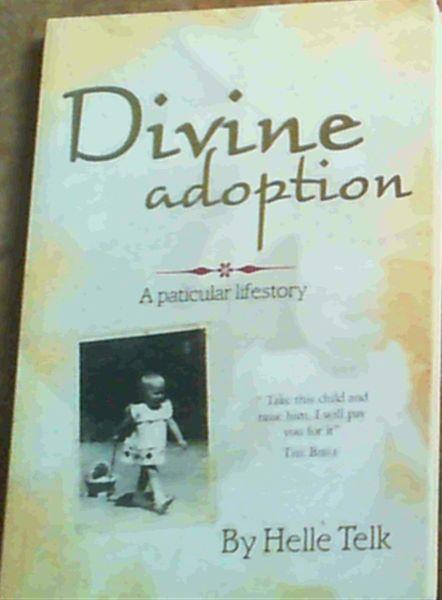
Q. You talk in your book about the importance of God's design for the family.
A. I defend the family 100%, the family as God created it. I advocate that parents raise their children in wisdom, reading the Bible, with spiritual values, teaching them who God is.
Many people fail in their family because they do not feed the spiritual part, they do not know how to raise their children. We must defend and fight for the family that God created.
Q. How did God work in your heart when you faced the reunion with your mother?
A. For more than forty years I did not see my mother. But when I was older and enjoying some stability in my life, God showed me that I should seek my mother and be reconciled with her.
At first it was very hard, I told God that I didn't want to. I did not talk about my mother in my family, my children knew nothing about their grandmother. I had everything locked up in a chest with a key, but the time was coming to open it with the key of forgiveness.
I decided to do it because I felt that it was something that would be good for me as well. I discussed it with my husband, my children, and decided to have a meeting with my mother. I called her and we met, it wasn't easy.
She was with her new husband and a son. After dinner together, I told my mother that I was there to forgive the past, and I wanted to tell her all that God had done with me during all those long years when we had not seen each other.
We then started a new, almost excellent relationship, which led us to live beautiful things.
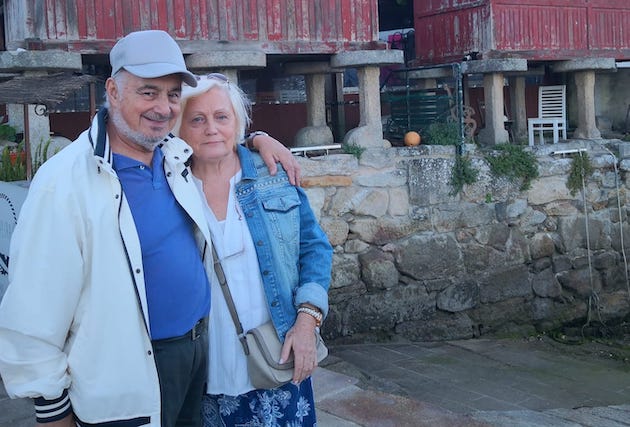
Q. It is not easy to exercise forgiveness, it is perhaps what costs us more of the things that the Bible asks us to do.
A. It is a road that must be travelled, it is long. But as the Bible says, if we do not forgive those who hurt us, God does not forgive us either. This verse weighed on me.
There is another one that says that whoever we forgive, God forgives him. I liked this verse. It's a way, but when you decide to forgive, you immediately start to feel relief. There was so much to forgive. It took a lot of effort, a long journey, but God was working in them as well as in me through forgiveness.
Q. What can you say when you look at your life in perspective?
A. I took God because of my overwhelming need to hold on to something. When my father passed away and I was alone, my dreams were shattered. So I told God that he had to be by my side. And He did. God is the solution to any problem.
When my mother passed away we were very close, we shared moments of prayer. Forgiveness opened doors. We were privileged to hear that both Richard and my mother were going to heaven because they had accepted Christ.
To God nothing is impossible, even if you are going through the hardest part of your life. For God everything is possible.

Las opiniones vertidas por nuestros colaboradores se realizan a nivel personal, pudiendo coincidir o no con la postura de la dirección de Protestante Digital.
Si quieres comentar o